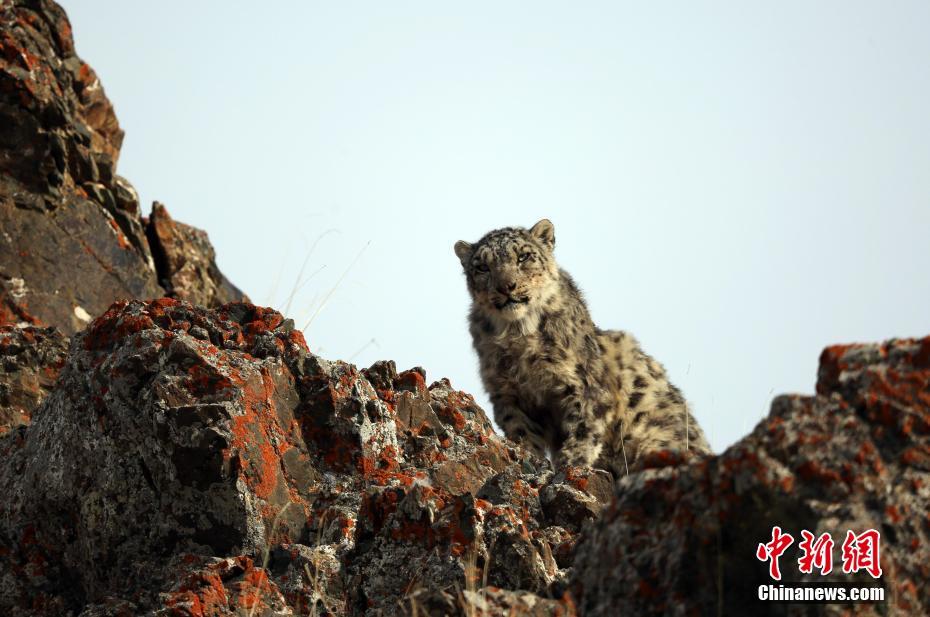NASA suspects our galaxy may teem with trillionsof planets.
Yet even with the powerful James Webb Space Telescope,About it's profoundly hard to find a handful of worlds that may harbor even hints of life.
The prospect of using Webb, which can peer into the atmospheres of planets beyond our solar system (exoplanets) to make such an unprecedented discovery, has stoked public curiosity and scientific scrutiny. Indeed, it's an exciting endeavor. Recently, NASA scientists weighed in on the significant challenges ahead in finding evidence of life, called biosignatures, in a distant world's atmosphere — such as a cocktail of molecules almost certainly produced by organisms (like oxygen, methane, and beyond).
"Discovery of life on an exoplanet will likely require a large set of unambiguously detected biosignatures, data from multiple missions and observatories, and extensive atmospheric modeling efforts, a process likely taking years," Knicole Colón and Christopher Stark, both Webb scientists at NASA’s Goddard Space Flight Center, explained in a new blog post.
SEE ALSO: NASA scientist viewed first Voyager images. What he saw gave him chills.Compelling observations from the most powerful and advanced space telescope, orbiting 1 million miles from Earth, would be a crucial factor in the effort to find elusive life among the stars. Yet there are major hurdles ahead.
 An artist's conception of the rocky, Earth-sized exoplanet TRAPPIST-1 e, located 41 light-years from Earth. Credit: NASA / JPL-Caltech
An artist's conception of the rocky, Earth-sized exoplanet TRAPPIST-1 e, located 41 light-years from Earth. Credit: NASA / JPL-Caltech The crux of the challenge is the difficulty of not just finding planets that could harbor life as we know it — which implies temperate, rocky, Earth-sized worlds that could harbor liquid water — but also detecting and looking into their profoundly distant, and faint, atmospheres.
Crucially, to peer into such a far-off atmosphere, a planet needs to be in the perfect orientation from our perch in the galaxy, transiting in front of its star so Webb can observe how this light filters though its atmosphere — ultimately revealing the chemicals there. This limits Webb to planets that are situated "edge-on" to us, similar to how you view a flying frisbee.
So far, scientists have confirmed finding 5,638 exoplanets (as of early June 2024), and 30 of these edge-on planets are Earth-sized, rocky, and orbiting in habitable zones — where liquid water could exist. These are intriguing candidates upon which to look for hints of life.
"Searching for biosignatures (biologically produced gases) is extraordinarily difficult, but also an exciting endeavor."
But sleuthing out an atmosphere will take patience, and likely years of observing. A planet's atmosphere blocks just some 0.02 percent or less of its star's sunlight, meaning that finding an atmosphere's existence at all requires careful viewing and multiple looks.
Take the planet LHS 1140 b, a rocky super-Earth about 1.7 times the size of Earth, located 49 light-years away. Astronomers estimate that attempting to detect "potential biosignatures" there would require observing 10 to 50 transits in front of its star, equating to 40 to 200 hours on the Webb telescope. "Given that Webb cannot view the LHS 1140 system year-round because of the system’s location on the sky, it would take multiple years if not close to a decade to collect 50 transit observations of LHS 1140 b," the NASA researchers explained.
"Searching for biosignatures(biologically produced gases) is extraordinarily difficult, but also an exciting endeavor," they added.
 A simulated example of how Webb might view potential biosignatures on a distant planet. Different molecules absorb different spectrums of light, revealing their presence. Credit: NASA / ESA / Leah Hustak (STScI)
A simulated example of how Webb might view potential biosignatures on a distant planet. Different molecules absorb different spectrums of light, revealing their presence. Credit: NASA / ESA / Leah Hustak (STScI)  Before its launch, technicians work on the James Webb Space Telescope's mirror. Credit: NASA / Chris Gunn
Before its launch, technicians work on the James Webb Space Telescope's mirror. Credit: NASA / Chris Gunn In the coming years and decades, exoplanet scientists and astrobiologists won't simply look at rocky worlds for potential hints of life, but rocky worlds they theorize could be blanketed in oceans, known as Hycean planets. As we know on Earth, life thrives in oceans; these worlds, if they exist, would be tantalizing places to look for potential biosignatures. The planet K2-18 b, discovered in 2015, could be such a place — though water hasn't been definitively detected there yet. In 2023, scientists suggested that the potential biosignature dimethyl sulfide, produced by plankton on Earth, could be present in this world's atmosphere. But the NASA researchers note "the potential dimethyl sulfide signal is too weak for a conclusive detection in the current data."
Webb, with a giant 21-foot mirror that catches loads of distant light, may never definitively find a biosignature. But its unprecedented look into distant worlds — revealing what many exoplanet atmospheres contain — could be invaluable. Combined with the observation of forthcoming space instruments, such as the Nancy Grace Roman Space Telescope (currently being built), scientists may collect the data they need to propose that a planet has compelling evidence of biosignatures.
Then, of course, that bold claim will visit the halls of peer-reviewed science around the world, subject to the bright light of intensive scientific scrutiny. It'll be an exciting, though grinding, ride.
For now, the science is indisputable.
"At the time of writing, there is only one known habitable and inhabited planet — Earth!" NASA's scientists emphasized.
 Why are exclusive dating apps usually so disappointing?
Why are exclusive dating apps usually so disappointing?
 Apple's iPhone 13 might have an always
Apple's iPhone 13 might have an always
 Single but never tried online dating? You're not alone.
Single but never tried online dating? You're not alone.
 Why are exclusive dating apps usually so disappointing?
Why are exclusive dating apps usually so disappointing?
 Rep. Devin Nunes was temporarily suspended from Twitter after reCAPTCHA fail
Rep. Devin Nunes was temporarily suspended from Twitter after reCAPTCHA fail
 Chrissy Teigen and John Legend adopted a new dog and boy is it cute
Chrissy Teigen and John Legend adopted a new dog and boy is it cute
![Creator job opportunities grew 7x in recent years [April 2025]](http://n.sinaimg.cn/news/transform/200/w600h400/20180719/bVWN-hfnsvza5448994.jpg) Creator job opportunities grew 7x in recent years [April 2025]
Creator job opportunities grew 7x in recent years [April 2025]
 Terrifying drone image of Australian bushfire takes top prize in wildlife photo contest
Terrifying drone image of Australian bushfire takes top prize in wildlife photo contest
 Best security deal: The 8
Best security deal: The 8
 Triggered VP Mike Pence leaves NFL game, tweets about it
Triggered VP Mike Pence leaves NFL game, tweets about it
 Amazon's driver monitoring app is an invasive nightmare
Amazon's driver monitoring app is an invasive nightmare
 New tech company Nothing acquires Essential, gives everyone a chance to invest
New tech company Nothing acquires Essential, gives everyone a chance to invest
 Donald Trump claims he came up with the term 'fake news'
Donald Trump claims he came up with the term 'fake news'
 Watch Naomi Osaka's delightful butterfly moment, mid
Watch Naomi Osaka's delightful butterfly moment, mid
 Netflix's 'Crime Scene: Vanishing at the Cecil Hotel' review
Netflix's 'Crime Scene: Vanishing at the Cecil Hotel' review
 Shop the Shark FlexStyle for 20% off at Amazon
Shop the Shark FlexStyle for 20% off at Amazon
 13 Halloween costume ideas for your most exotic pets
13 Halloween costume ideas for your most exotic pets
NASA's Mars rover is back in action after two weeks of silenceWhat is a VPN, and what does it do on a Mac?Annoyed residents get back at their HOA in the pettiest way possibleHow to setup a VPN on PlaystationHow a deaf, blind Harvard graduate is influencing AppleFierce cyclone deluges the West Coast, satellite footage showsViral TikTok air fryer recipe for peanut butterThis dog takes the word 'retriever' to another levelWhat size is the iPhone 13 (as well as the 12, 11, and X)?How to enter low power mode automatically on iPhoneHow to enter low power mode automatically on iPhoneInteractive map shows how state abortion bans might impact reproductive healthcare accessMark Zuckerberg angrily insists Facebook is the real victim hereSean Penn's book talks about #MeToo and we're mad onlineNo, Stormy Daniels' lawyer didn't say he has Trump dick picsJames Michael Tyler, beloved Central Perk manager Gunther on 'Friends', is dead at 59Donald Trump tweets about wanting to beat up Joe BidenGrandpa Biden and Trump fighting memes are the only thing that can save America20 years later, 'Donnie Darko' feels finally fit for our timesTesla's new feature turns your car into a security camera with remote access Amazon reveals Kindle Colorsoft: Pre Scotland vs. Portugal 2024 livestream: Watch UEFA Nations League for free Best water flosser deal: Save $20 on Bitvae Water Floss Best Grubhub promo code: Prime members can save 20% Best Kindle Scribe deal: Save $76 on Amazon Kindle Scribe and Premium Pen Wordle today: The answer and hints for October 15 Wordle today: The answer and hints for October 16 Best AirPods deal: Get the new Apple AirPods 4 for just $168.99 Samsung Freestyle projector deal: Get $200 off at Best Buy Best fitness tech deal: Get a Samsung Galaxy Ring for as low as $328 at Amazon FCC investigating why broadband data caps are still a thing Why is TikTok obsessed with the winter arc? Home Depot sale: Get up to 40% off select items Best star projector deal: Save 20% at Amazon Simu Liu, bubble tea, and 'Dragons' Den': Why TikTok is in an uproar Best Garmin deal: Get the vívoactive 5 for $50 off Free Apple Intelligence upgrade likely arriving soon X deemed not important enough to face EU antitrust regulations Robot vacuums spew racial slurs at owners in wake of hack Google's Android 15 is here, and it's all about security and privacy
2.4074s , 10158.4453125 kb
Copyright © 2025 Powered by 【About】,Inspiration Information Network